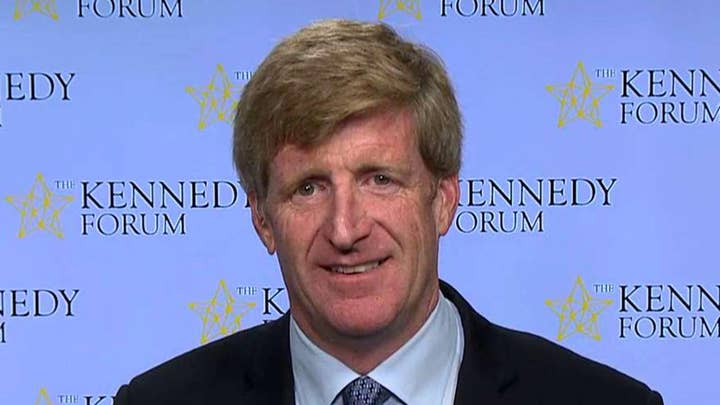'Big Pot' pushes back against ex-lawmaker bid to be Biden 'drug czar'
Former Rep. Patrick Kennedy, D-R.I., sounds off on 'Tucker Carlson Tonight'
Former congressman Patrick Kennedy responded Friday to a Bloomberg report that the U.S. marijuana lobby is trying to prevent him from becoming the head of the Office of National Drug Control Policy, a position commonly known as the "drug czar".
"We love our addictions in America, and, you know, I think it’s a big profitable business, and, of course, real profit comes when people do not drink responsibly," Kennedy, a recovering cocaine and prescription drug addict told "Tucker Carlson Tonight". "I don’t think alcohol [companies] make money off of people who drink responsibly. They make their money off of people like me, who drink more than they should."
Kennedy, who represented Rhode Island's 1st District in the House of Representatives for 16 years and is the son of the late Sen. Edward Kennedy, is also an outspoken opponent of the legalization of recreational marijuana use.
The former lawmaker claimed the vice industry sees younger consumers as a potential cash cow, citing products like hard lemonades and Juul vaping mechanisms as well as 20th Century ads featuring Joe Camel and other characters.
Kennedy then noted that Richmond-based Altria, which owns tobacco product manufacturer Philip Morris, has a stake in Juul while also investing in the cannabis industry.
"[T]hey are making a strategic bet that we’re going to legalize and commercialize marijuana in this country," he said. "Tucker, I’ve got five kids and I know they are going to be primed to suffer from addiction."
"Part of addiction runs in your genes, but the other part is when it happens because young people’s brains aren’t fully formed. And kids today are panicked, anxious, depressed. Of course, why wouldn’t they be, given the unsettled economy and the COVID and impact of it. So it’s natural that people want to self-medicate."
Kennedy suggested his personal experiences and his apprehension surrounding alcohol and drugs concern "Big Pot" and other powerful lobbying entities in Washington.
CLICK HERE TO GET THE FOX NEWS APP
"I know addiction is a plague. I’ve seen it up close in my family. I’ve suffered in my own life. I have seen it with my friends, and I don’t think our country is really up for this trade-off in order to have a commercialized product that’s so addictive, and being able to pay the price for that down the road with all the people that will suffer from this disease," he said.
"I just don’t think people care. I’m really concerned that we’re not as sensitive about the disease of addiction."






